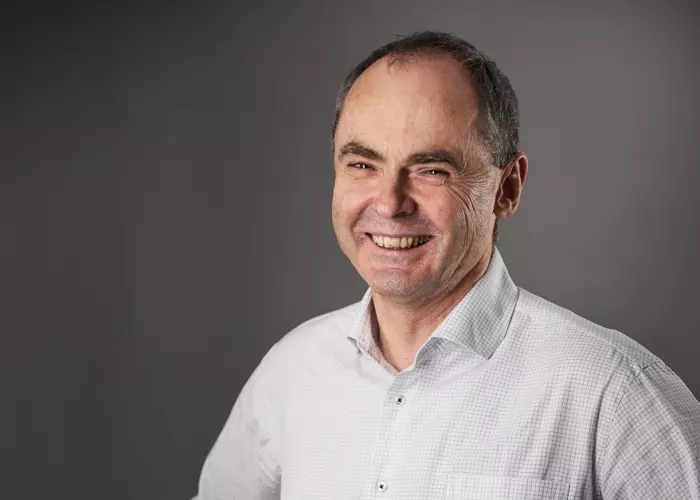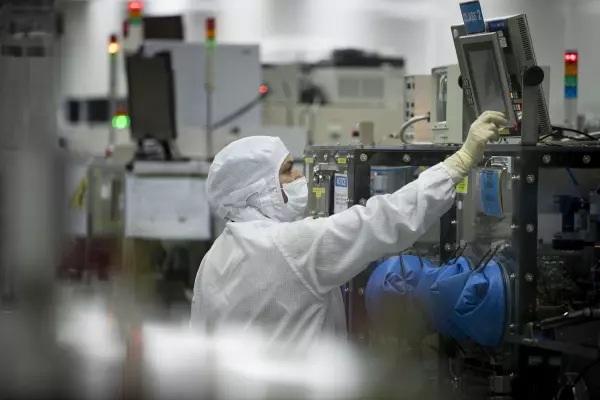Orion Health is working on an IT project in Saudi Arabia that it says is the biggest of its kind in the world, serving all of the country’s 35 million people.
Chief executive Ian McCrae wouldn't disclose the value of the deal but said it was one of the top three largest Orion projects ever and will result in the world’s largest health information exchange (HIE).
Deals of a similar size can reach into the hundreds of millions of dollars, and Orion itself announced a US$100m deal in the US state of Oklahoma in May 2021.
A new software platform will pull in Saudi patient data from all the country’s healthcare providers, which number more than 5,000 across government-provided free services as well as private organisations.
McCrae told BusinessDesk that without data sharing, when a patient went to their doctor’s office, that doctor would not know all the drugs you were on, all the diagnoses and any other events.
“You have to rely on the memory of the patient, which is sometimes not perfect.”
He said the deal with the Kingdom of Saudi Arabia had been six years in the making. Orion has been working on the HIE system for about six months and it will be live by the end of the year.
The system uses machine learning and artificial intelligence (AI) to pull in patient data from many different digital sources to present healthcare providers with one platform of accumulated patient information.
“The pharmacies, GPs, and hospitals all use different coding systems and it's quite difficult to marry them up. So, you have to use machine learning to do it.”
Healthcare services also give different conditions, different names and different codes within various IT systems, which Orion must standardise.
“It's not practical to have a homogeneous [system where] everybody uses exactly the same piece of software. Primary, public hospitals, private hospitals, labs, all use software from different vendors for good reasons,” McCrae said.
“You have to pull the data together, tidy it up, and then present it back to medical staff in a way which they can interpret and make sensible decisions from.”
Ahead of NZ
McCrae said he did not know how the NZ government planned to structure the new IT systems of its Health New Zealand project that will see district health boards scrapped, but the use of AI tech similar to Orion’s would negate the need for patients to fill out long forms at any healthcare provider.
“You shouldn't need to do that, the data should just all be there,” he said.
“This is how health is shifting from all about automating hospitals. It’s shifting out into public health. The next logical thing is to give the parents access to their own medical records.”
Asked if Saudi Arabia’s historically problematic regime would prove an issue for Orion Health at any stage, McCrae said the country was going through “immense change”.
“I notice just the change that we’ve seen in Riyadh – they are increasing freedoms and things that historically women couldn’t do.
“The country is definitely changing. They see themselves as emerging as Dubai and Abu Dhabi are. It strikes me that Saudi Arabia is going down the same path and they’re investing a lot in people.”
McCrae was a vocal critic of the NZ government’s covid-19 IT spend and claimed Orion could have upgraded its existing national immunisation register to accommodate NZ’s vaccination programme for about $50,000.
The ministry said Orion advised its register was approaching the end of its life. McCrae disputed this claim, and Orion was not asked to pitch to provide the new covid-19 immunisation register. The usual procurement process was skipped, and the project was awarded to Deloitte and Salesforce.
The government has allocated $38m in total to fund a new national immunisation service, which includes more than this new immunisation register.
BusinessDesk reported in Sept that Orion Health received $34.2m in grants from Callaghan Innovation since 2019, the second-highest amount behind the $35.7m awarded to Tait Communications and more than both Zespri and Rocket Lab.















